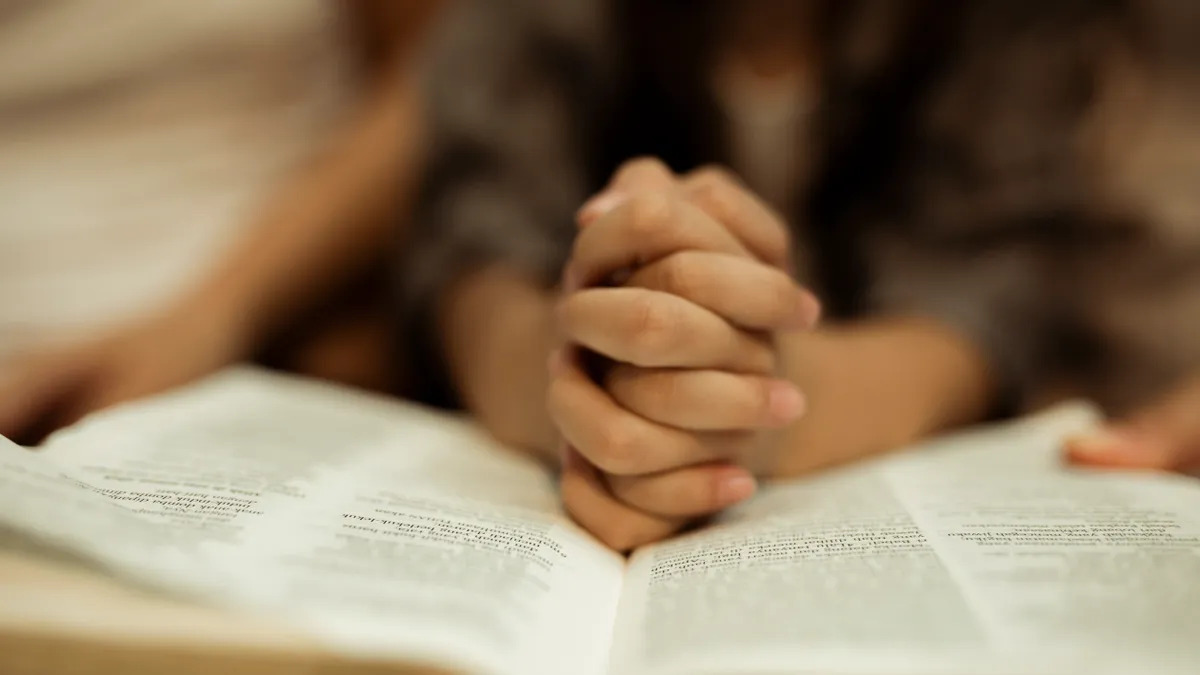Dive Brief:
- In an unprecedented move, Oklahoma officials on Monday approved on a 3-2 vote the establishment of a virtual religious charter school. Moving forward, this would lead to the creation of the first religious public school in the nation’s modern history.
- State Attorney General Gentner Drummond called it an unconstitutional decision by the Oklahoma Statewide Virtual Charter School Board to approve the application of the Catholic Archdiocese of Oklahoma City and establish the St. Isidore of Seville Catholic Virtual Charter School. The use of public funds for a religious school “is contrary to Oklahoma law,” Drummond said in a statement, adding that legal action will likely follow once a school contract is signed.
- While opponents raise concerns that the new religious public charter school could jeopardize funding for traditional public schools nationwide and interfere with the separation of church and state, supporters are celebrating and preparing for the decision to be ultimately left to the U.S. Supreme Court.
Dive Insight:
Members of the Oklahoma virtual charter board anticipated lawsuits whether they voted yes or no on the religious public charter school’s application.
In fact, the Americans United for Separation of Church and State said in a statement that it plans to “take all possible legal action to fight this decision and defend the separation of church and state that’s promised in both the Oklahoma and U.S. Constitutions.”
“State and federal law are clear: Charter schools are public schools that must be secular and open to all students,” said Rachel Laser, the organization’s president and CEO. “No public-school family should fear that their child will be required by charter schools to take theology classes or be expelled for failing to conform to religious doctrines.”
On the other hand, Brett Farley, executive director of the Catholic Conference of Oklahoma, called it an “honor” to play a significant role in establishing the nation’s first religious public charter school. The move is a part of a bigger goal of the conference, which is to expand educational options for parents in the state who are “begging for” more choices, Farley said.
The proposal to establish the religious charter school in Oklahoma came about following two Supreme Court cases — Carson v. Makin and Espinoza v. Montana Department of Revenue. In Carson v. Makin, the Supreme Court ruled in 2022 that families should have the option to send their children to private religious schools with funding from public tuition subsidy programs. In the 2020 Espinoza v. Montana Department of Revenue decision, the Supreme Court likewise ruled in favor of a Montana mother who wanted to use the state’s tax credit-funded scholarship to send her children to a Christian school.
The Supreme Court has yet to announce if it will consider another case, Charter Day School, Inc. v. Peltier, which could ultimately address whether charter schools are public or private and influence a decision on the Oklahoma religious charter school. An amicus brief filed in May by the U.S. Department of Justice urged the Supreme Court not to hear Peltier, arguing it is the wrong case to settle the question.
If the Oklahoma religious charter school also eventually makes it to the Supreme Court, Farley said he expects the case could be one of the final chapters in this debate.
There is a “dire need” for more educational options in rural areas as well as to help students who need special education services, and that doesn’t apply to just Oklahoma, Farley said.
“We recognize that trying to meet those needs in the rural areas is cost prohibitive if we’re discussing the possibility of just standing up new physical schools,” he said. “But in a virtual operation, partnering with states … suddenly that becomes not only possible but a really great opportunity. The kids are suffering out there from a lack of opportunity.”
Rabbi Abby Jacobson of Oklahoma City’s Emanuel Synagogue and the president of the Interfaith Alliance of Oklahoma said she was saddened to hear the decision to approve the religious charter school in her state.
The Interfaith Alliance of Oklahoma is concerned about this decision and is willing to join any legal action against it, Jacobson said. As a mother of public school children and a taxpayer, Jacobson said using government funds to pay for religious schools is an unhealthy direction for the American public school system to move toward.
“I assume that this is a foothold for the idea of publicly funded religious charter schools to spread,” Jacobson said. “I think it’s a bad idea for Oklahoma. I think it’s not going to solve the problems people think it is.”
Nina Rees, president and CEO of the National Alliance for Public Charter Schools, also pushed back against the decision in Oklahoma.
“The Archdiocese of Oklahoma City is trying to make charter schools into something they are not,” Rees said in a statement. “We stand ready to support charter school advocates on the ground in Oklahoma as they fight to preserve the public nature of these unique schools and protect the religious and civil rights of the students and teachers who choose them.”







 Dive Awards
Dive Awards







